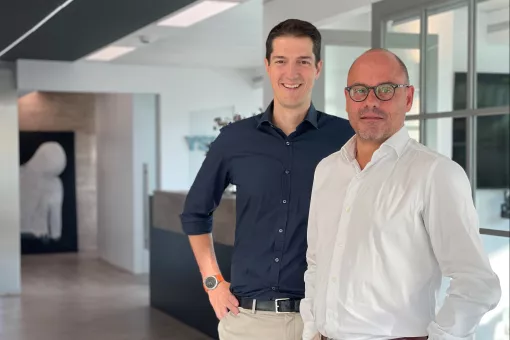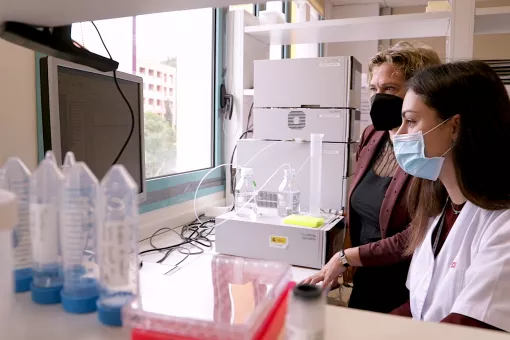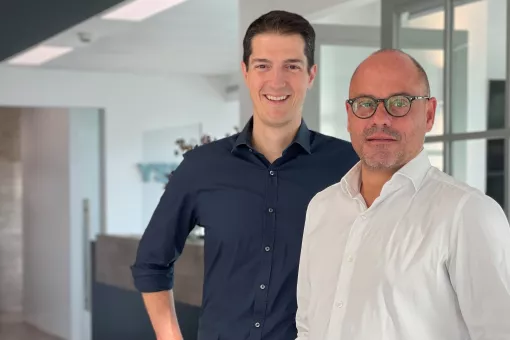Images
"In love with the genetic code", the new video in the series Meet Our Scientists, presents the research performed by Lluís Ribas on the genetic code and protein synthesis, both of which are essential for life.
Ribas highlights the impact of the evolution of the enzyme ADAT, described in the journal Cell in 2012. The appearance of ADAT was decisive for the separation of species into the three domains of life, and it could be of biomedical and biotech relevance.
All biomedical research centres should have a lab devoted to understanding life. How did life come about? How did it evolve? How does it work? These are some of the fundamental questions that Lluís Ribas de Pouplana (Girona, 1965) attempts to answer through the projects undertaken in the Gene Translation Lab at the Institute for Research in Biomedicine (IRB Barcelona). Lluís Ribas talks about his work in the new video called "In love with the genetic code", which forms part of the series Meet Our Scientists, an initiative launched this year. These short videos seek to raise awareness of scientific leaders at the institute, increase the visibility of biomedicine, and attract talent.
The genetic code - the lingua franca of life
In search of answers to the puzzle of life, Ribas focuses on another enigma, namely the universal genetic code. He says, "the genetic code is the alphabet that genes use to make proteins and this process is essential for life itself. By analysing the evolution of the code, we seek to understand how life came about, how it developed, and also all the pathological effects that arise when protein synthesis breaks down".
Ribas de Pouplana set up the Gene Translation Laboratory in 2003, after spending 15 years abroad, first at the Edinburgh University, in Scotland, then at the Massachusetts Institute of Technology (MIT) in Cambridge, on the East coast of the US, and finally at the Scripps Research Institute in La Jolla, in California. During his long stay in the US, he was marked by the importance of innovation. "Scientists are passionate about discovering but also part of our work involves being aware of the contribution of our findings to resolving specific biomedical problems, and of the value of knowledge transfer by setting up businesses", explains Ribas, co-founder of two "biotech" enterprises.
A specific example of this vision is the discovery of the enzyme ADAT in 2012, published in Cell. The appearance of this enzyme brought about evolutionary pressure that influenced the development of eukaryotic genomes, including the human genome. "ADAT serves to ensure faithful and rapid synthesis of proteins exactly when cells need them", says the scientist. “Moreover, ADAT might be associated with human diseases and we are looking into that. Also, it could be used to improve protein synthesis, since we believe that this enzyme improves the production of these molecules,” he adds.
Lluís Ribas makes a comparison between a personal belonging that he shows in the video –a feature of the Meet Our Scientists videos- with his work: "With the tools we have in hand, we scientists explore in the dark to discover new things."
About IRB Barcelona
The Institute for Research in Biomedicine (IRB Barcelona) pursues a society free of disease. To this end, it conducts multidisciplinary research of excellence to cure cancer and other diseases linked to ageing. It establishes technology transfer agreements with the pharmaceutical industry and major hospitals to bring research results closer to society, and organises a range of science outreach activities to engage the public in an open dialogue. IRB Barcelona is an international centre that hosts 400 researchers and more than 30 nationalities. Recognised as a Severo Ochoa Centre of Excellence since 2011, IRB Barcelona is a CERCA centre and member of the Barcelona Institute of Science and Technology (BIST).






